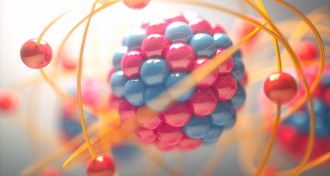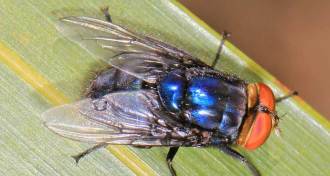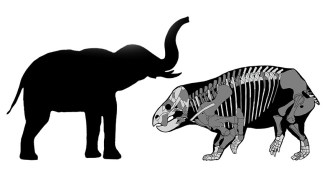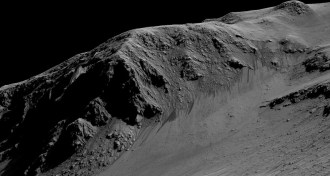Uncategorized
-
 Animals
AnimalsHow locust ecology inspired an opera
When an entomologist decides to write a libretto, you get an operatic elegy to locusts.
By Susan Milius -
 Particle Physics
Particle PhysicsPhysicists finally calculated where the proton’s mass comes from
New study indicates that the proton is much more than just the sum of its parts.
-
 Particle Physics
Particle PhysicsWhy a chemistry teacher started a science board game company
Subatomic is the latest game from John Coveyou, whose company Genius Games wants people to find the joy in science.
By Kyle Plantz -
 Environment
EnvironmentEngineers are plugging holes in drinking water treatment
Drinking water quality has come a long way in the past hundred years — but challenges remain.
-
 Agriculture
Agriculture50 years ago, screwworm flies inspired a new approach to insect control
The United States has wiped out screwworm flies repeatedly since 1966 using the sterile male eradication technique.
By Kyle Plantz -
 Paleontology
PaleontologyThis huge plant eater thrived in the age of dinosaurs — but wasn’t one of them
A newly named plant-eater from the Late Triassic was surprisingly hefty.
-
 Planetary Science
Planetary ScienceAn orbiter glitch may mean some signs of liquid water on Mars aren’t real
The way that scientists process data from a Mars orbiter creates what look like signs of saltwater, but may actually be nothing, a study finds.
-
 Neuroscience
NeuroscienceBrain implants let paralyzed people use tablets to send texts and stream music
People with paralysis could control commercially available tablets with their brain activity, researchers show.
-
 Tech
TechA new airplane uses charged molecules, not propellers or turbines, to fly
A small aircraft prototype is powered by ionic wind flowing in one direction and pushing the plane in the other.
-
 Science & Society
Science & SocietyDo you know how your drinking water is treated?
Editor in Chief Nancy Shute discusses drinking water quality in the United States and the latest research on water treatment technology.
By Nancy Shute -
 Science & Society
Science & SocietyReaders react to the SN 10 and Jocelyn Bell Burnell
Readers expressed their thoughts about the SN 10 scientists, Saturn's hexagons and Jocelyn Bell Burnell.
-
 Tech
TechHow Twitter bots get people to spread fake news
Automated bot accounts on Twitter help spread misinformation by strategically encouraging people to make it go viral.